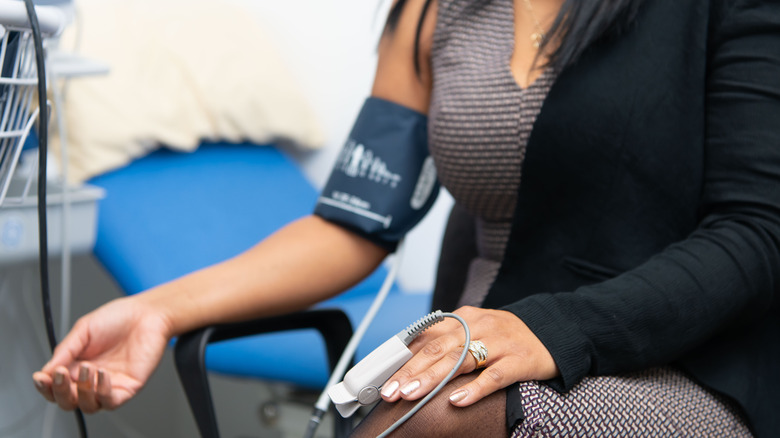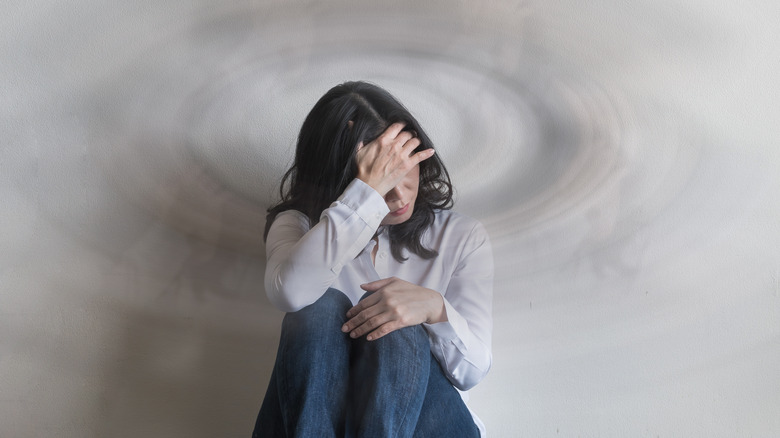You Might Have Low Blood Pressure If This Happens To You
One of the best ways to predict someone's risk of heart attack, stroke, or cardiac disease is to measure their blood pressure (via Mayo Clinic). In most cases, lower blood pressure is considered a sign of good health. However, if blood pressure readings get too low, it could be a sign of an underlying health condition that needs to be treated. For this reason, you'll want to know the signs of dangerously low blood pressure and what you can do about it.
Low blood pressure, also known as hypotension, is a condition in which adults have a blood pressure reading of 90/60 or less (via Healthline). The top, or systolic number, is a measure of your heart squeezing blood through the ventricles. The bottom number, or diastolic pressure, is how the periods of rest between squeezes are measured. Blood pressure can vary from day to day, or even minute to minute, depending on many different factors. If low blood pressure is causing symptoms that are impacting your overall health, it might be time to find out what's causing your blood pressure issues.
Low blood pressure has many causes
Some signs of low blood pressure include, but are not limited to, dizziness, lightheadedness, fainting, nausea, fatigue, blurred vision, and feeling unusually thirsty (via American Heart Association). If you find yourself feeling dizzy or lightheaded when you stand up, you may have what's known as orthostatic hypotension (via Mayo Clinic). This condition develops when your body isn't able to adequately pump the blood from your legs back to your brain when you stand up from a sitting position. The blood that collects in the legs doesn't make it to the rest of your body quickly enough, and you're left with a decrease in blood pressure.
Alternatively, some people may see a drop in blood pressure after eating. This occurs when additional blood flows to your stomach to aid in digestion. For those with low blood pressure, instead of making up for the loss of blood in other places, the body fails to maintain normal blood pressure and you are more likely to feel dizzy or faint.
You may be at higher risk of developing low blood pressure if you have certain diseases such as diabetes or Parkinson's, take medications for high blood pressure or depression, or if you're over the age of 65. If you suspect you may have hypotension, be sure to stay hydrated and see your doctor for formal diagnosis and treatment.


